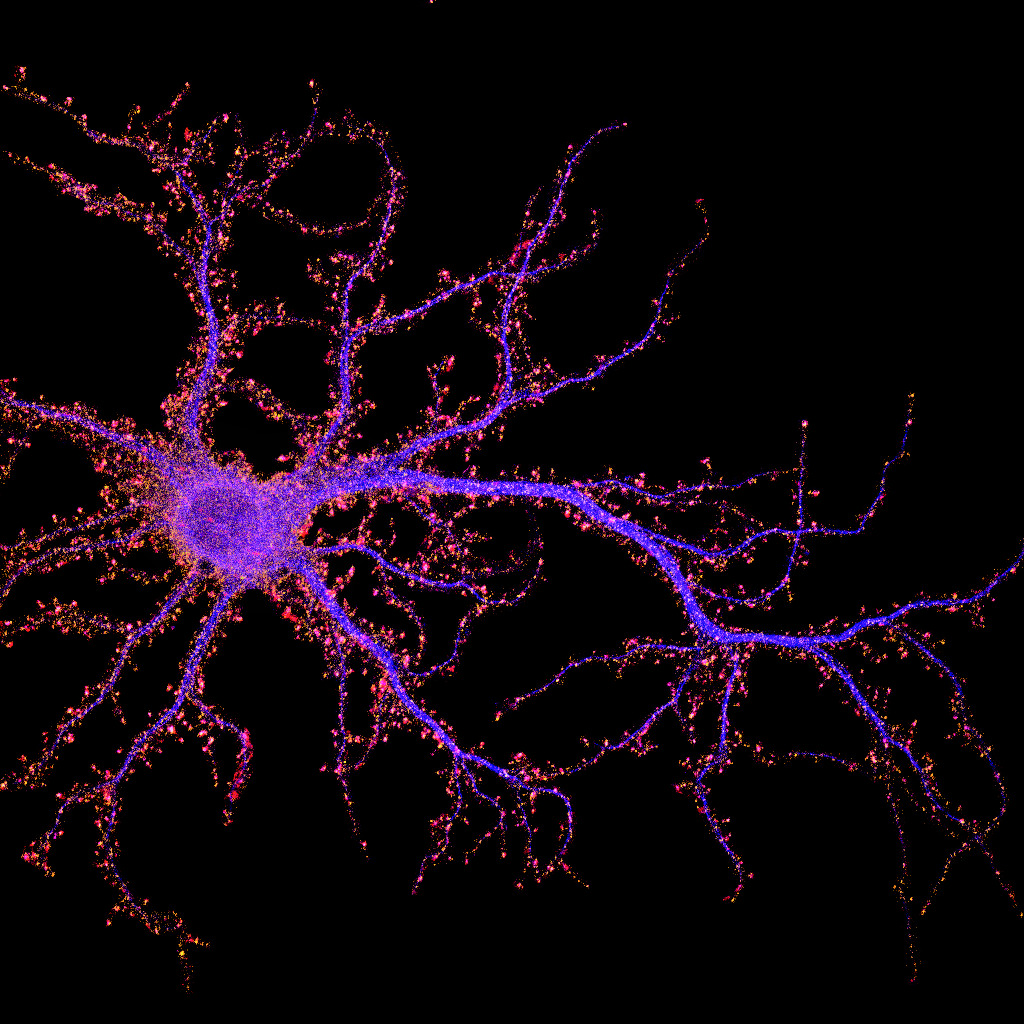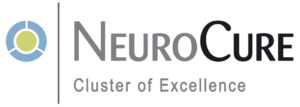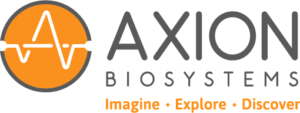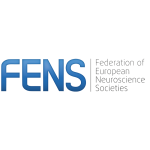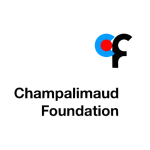Course overview
Synapses are sites of information transfer and storage in the brain. These specialised structures integrate complex signals and undergo functional changes that underlie the formation of memories. Synaptic dysfunction is associated with early stages of neurodegenerative disorders such as Alzheimer’s disease, and underlies neurodevelopmental disorders such as autism spectrum disorders and intellectual disability.
Studying synapse function and plasticity is key to understanding brain circuits that underlie behaviour, and to identify synaptic malfunction mechanisms underpinning brain diseases. This course will allow students to integrate theoretical and methodological concepts on synapse biology with hands-on experience on state-of-the art imaging, functional and computational methodologies. The course provides an in-depth understanding to many concepts such as synapse formation and maintenance, pre- and postsynaptic mechanisms, structural and functional synaptic plasticity, synaptic integration in neuronal networks and synaptopathies. Hands-on experimental projects conducted in small groups with the support of senior scientists will expose the students to methodologies at the forefront of research in this field.
Course directors
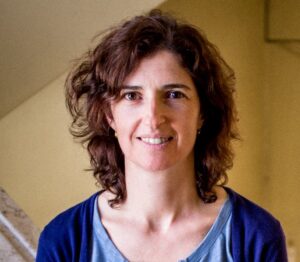
Ana Luisa Carvalho
Course Director
CNC-Center for Neuroscience and Cell Biology, University of Coimbra, Portugal
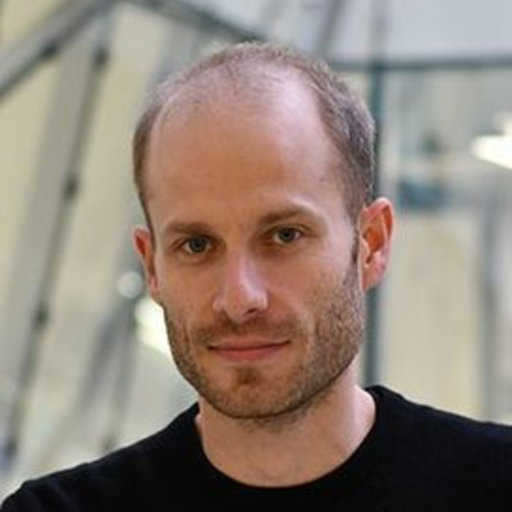
Mathieu Letellier
Course Director
IINS, University of Bordeaux, France

Hey-Kyoung Lee
Course Director
The Zanvyl Krieger Mind/Brain Institute, The Johns Hopkins University, USA
Keynote Speakers
Alfredo Kirkwood – Johns Hopkins University, USA
Brian D McCabe – EPFL, Lausanne, Switzerland
Cécile Charrier – Institute of Biology, École Normale Supérieure, France
Christian Lohmann – Netherlands Institute for Neuroscience, Netherlands
Daniel Choquet – IINS, University of Bordeaux, France
Joseph Kittler – University College London, UK
Juan Burrone – King’s College London, UK
Julie Perroy – IGF, University of Montpellier, France
Julijana Gjorgjieva – Max Planck Institute for Brain Research, Germany
Marina Mikhaylova – Humboldt Universität zu Berlin, Germany
Nael Nadif Kasri – Radboudumc Donders Institute for Brain, Cognition and Behaviour, Holland
Noa Lipstein – FMP-Berlin, Germany
Rosa Paolicelli – University of Lausanne, Switzerland
Instructors
Alexy Louis – IINS, Univ of Bordeaux, France
Anne-Claire Compagnion – Univ. Lausanne, Switzerland
Elena Baz-Badillo – IINS, Univ Bordeaux, France
Frederic Gambino – IINS, Univ Bordeaux, France
Joana Ferreira – CNC, Univ Coimbra, Portugal
Julia Bär – Humboldt Universität zu Berlin, Germany
Julien Dupuis – IINS, Univ Bordeaux, France
Kevin Crosby – University of Colorado Denver, Department of Pharmacology, USA
Léa Sarzynski – IINS, Univ Bordeaux, France
Lucille Alonso – IINS, Univ Bordeaux, France
Luís Ribeiro – CNC, Univ Coimbra, Portugal
Margaux Giraudet – IINS, Univ Bordeaux, France
Marie-Lise Jobin – IINS, Univ Bordeaux, France
Marina Hommersom – Radboudumc Donders Institute for Brain, Cognition and Behaviour, Holland
Michelle Bridi – West Virginia University, USA
Mónica Santos – CNC, Univ Coimbra, Portugal
Olivier Nicole – IINS, Univ Bordeaux, France
Tamara Buijs – Netherlands Institute for Neuroscience, Netherlands
Vivek Belapurkar – IINS, Univ Bordeaux, France
Course content
Exposure to central topics in synapse biology, and hands-on experience with exciting projects with innovative techniques
The research in synapse biology holds a central place in Neuroscience, as it connects findings in molecular and cellular Neuroscience to the understanding of circuits and behaviour. In addition, synaptopathy is a major pathogenic mechanism in both neuropsychiatric and neurodegenerative disorders. The last decades have brought enormous advances in the methodologies used to study synapses, and which endow researchers with the possibility to bridge from the molecular analyses of synapses to cellular, circuits and behaviour approaches to tackle central questions about how the brain works.
This course provides the opportunity to learn from experts in the field about questions at the forefront of synapse biology, and to obtain hands-on experience with innovative techniques to study synapses. These include gene transfer, live imaging of proteins and signalling molecules (including in vivo 2 photon microscopy), superresolution microscopy for cellular imaging of proteins at excitatory and inhibitory synapses, electrophysiology, animal behaviour and computational methods.
Topics
- Synaptic traficking
- Synaptogenesis, synapse adhesion and synapse maintenance
- Presynaptic mechanisms
- Inhibitory synapses
- Structural and functional synaptic plasticity
- Synaptic integration in neuronal networks
- Calcium dynamics and signaling
- Microglia in the shaping of neural circuits
- Synaptic dysfunction in disease
- Synaptic computation
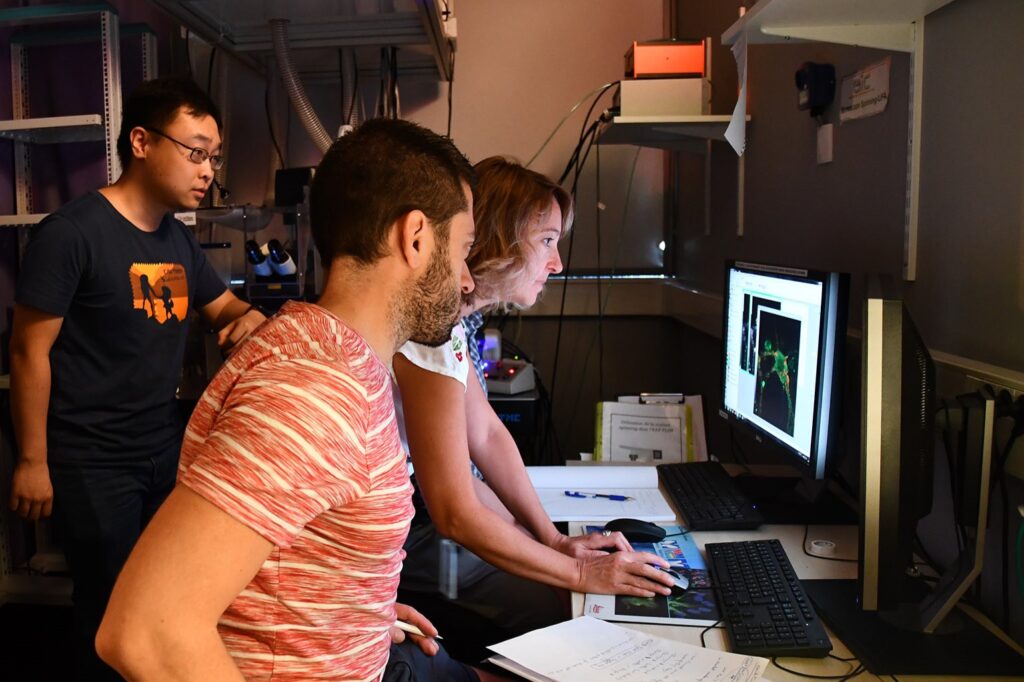
Course format
Three weeks of intensive training, with students in the lead, supported by senior scientists
The course includes both lectures by leading scientists in synapse biology, and hands-on training in two projects of about 9 days each, supported by senior scientists. Students (20 maximum) will attend theoretical and methodological lectures during the morning sessions, and spend the afternoon period in the Neuroscience Training Lab at the Neurocampus performing projects in groups of 2-3 students. The training laboratory is dedicated to the course and it is equipped with a wet lab for cellular and molecular biology, cell culture and animal rooms, electrophysiology rigs and behavior set-ups. Students will have access to core facilities at the University of Bordeaux, including to the Bordeaux Imaging Center, the Functional Genomics and the Biochemistry facilities. Support and expertise to carry out the projects is provided by external instructors coming from leading international laboratories in synapse biology, who will be present throughout the duration of the projects and assist students in their experiments (one instructor per group). Students are encouraged to participate in the design of projects, ahead of the course, through interaction with their project instructor. Students are welcome to bring their constructs or models, to be integrated in the project to be conducted. At the end of each project, students will present their findings and discuss with colleagues and instructors. Extracurricular activities (such as panel discussions on ethics, diversity and equity in Neuroscience), outreach activities and social events are also planned.
Techniques
- Whole cell patch clamp recordings in brain slices
- Patch-seq / RNAseq
- Co-culture synaptogenic assay
- Synaptic interactome analysis through proximity-dependent labeling
- Stereotaxic surgery with cannulae implantation
- Behavior analysis
- Confocal time-lapse imaging and FRAP measurements
- FLIM-FRET measurements for activity sensors
- Single-molecule tracking and PALM studies
- Direct stochastic optical reconstruction microscopy (dSTORM)
- hiPSC culturing and neuronal differentiation
- MEA recording: Axion Maestro Pro
- Two photon imaging
Experimental projects:
- Nanoscale organization of the synapse
- Superresolution microscopy in the analysis of transsynaptic interactions
- Interactome of synaptic cell-adhesion molecules
- Architectural and signalling dynamics at the inhibitory synapse
- Regulation of inhibitory synaptic transmission by wake-active neuromodulators
- Measuring spontaneous network activity of human iPSC-derived neurons using micro-electrode arrays
- Microglia-mediated synapse engulfment
- Membrane trafficking/endo/exocytosis
- In vivo imaging of boutons related to behavior
- Pharmacological modulation of fear extinction
- Mitochondrial dynamics and dendritic calcium imaging
- Multimodal profiling of synaptic connectivity through patch-seq
Bordeaux School of Neuroscience, France
The Bordeaux School of Neuroscience is part of Bordeaux Neurocampus, the Neuroscience Department of the University of Bordeaux. Christophe Mulle, its current director, founded it in 2015. Throughout the year, renowned scientists, promising young researchers and many students from any geographical horizon come to the School.
The school works on this principle: training in neuroscience research through experimental practice, within the framework of a real research laboratory.
Facilities
Their dedicated laboratory (500m2), available for about 20 trainees, is equipped with a wet lab, an in vitro and in vivo electrophysiology room, IT facilities, a standard cellular imaging room, an animal facility equipped for behavior studies and surgery and catering/meeting spaces. They also have access to high-level core facilities within the University of Bordeaux. They offer their services to international training teams who wish to organize courses in all fields of neuroscience thanks to a dedicated staff for the full logistics (travels, accommodation, on-site catering, social events) and administration and 2 scientific managers in support of the experimentation.
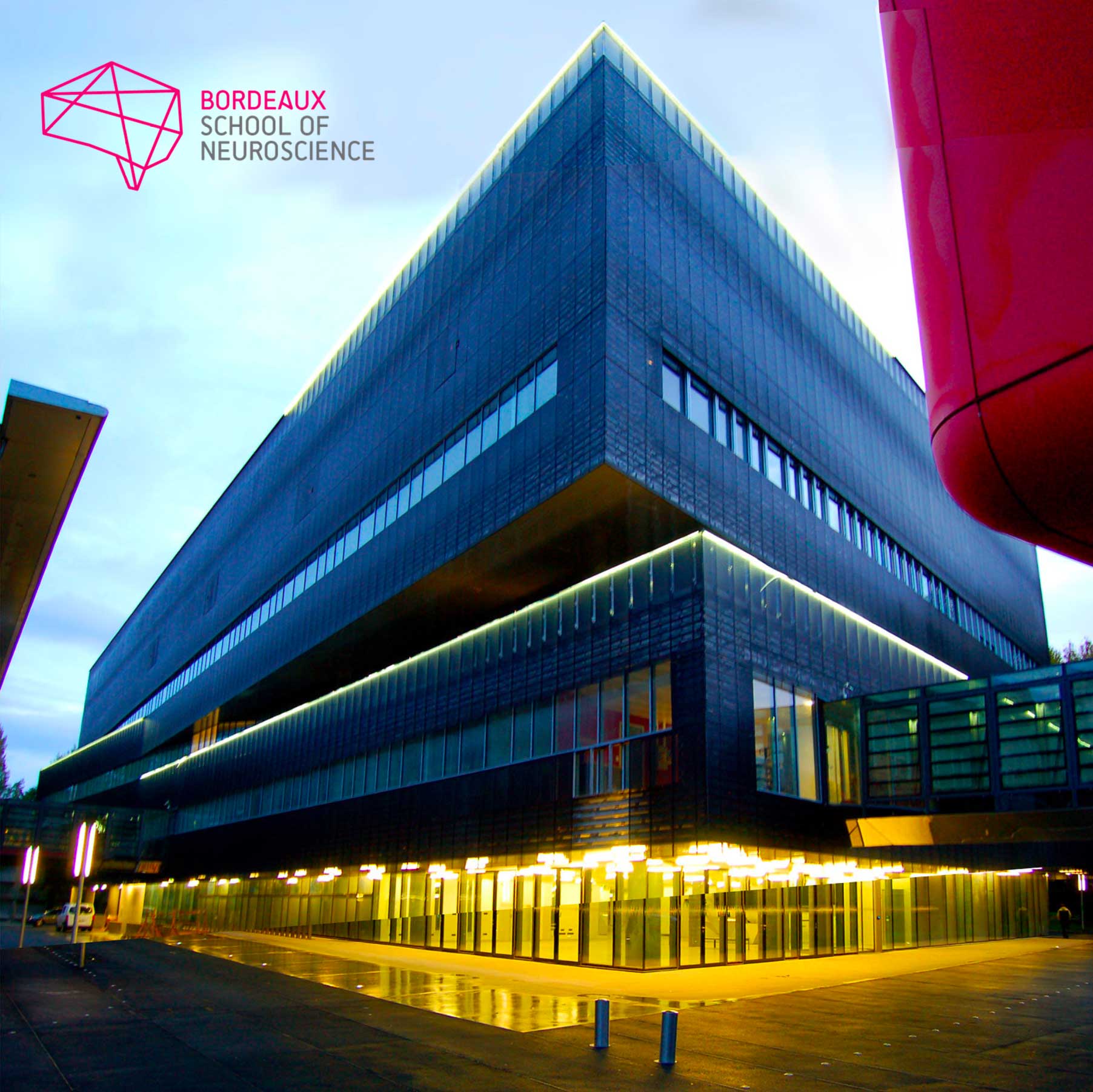
Registration
Fee : 3.950 € (includes tuition fee, accommodation and meals)
Applications closed 29 May 2023
The CAJAL programme offers 4 stipends per course (waived registration fee, not including travel expenses). Please apply through the course online application form. In order to identify candidates in real need of a stipend, any grant applicant is encouraged to first request funds from their lab, institution or government.
Kindly note that if you benefited from a Cajal stipend in the past, you are no longer eligible to receive this kind of funding. However other types of funding (such as partial travel grants from sponsors) might be made available after the participants selection pro- cess, depending on the course.

